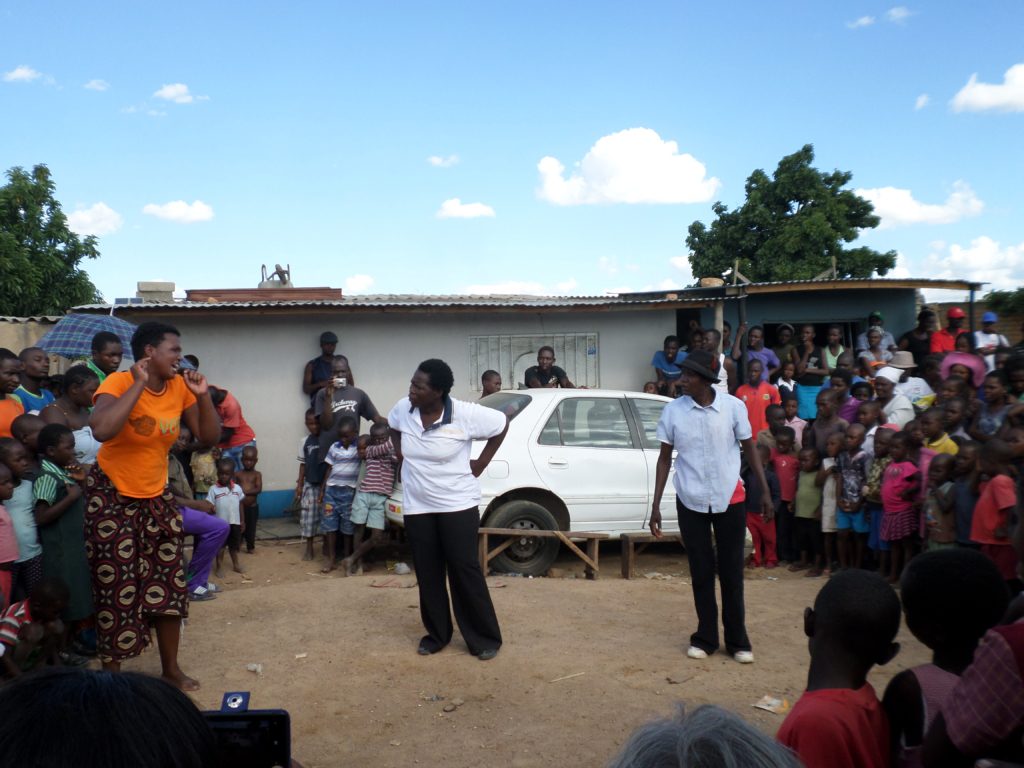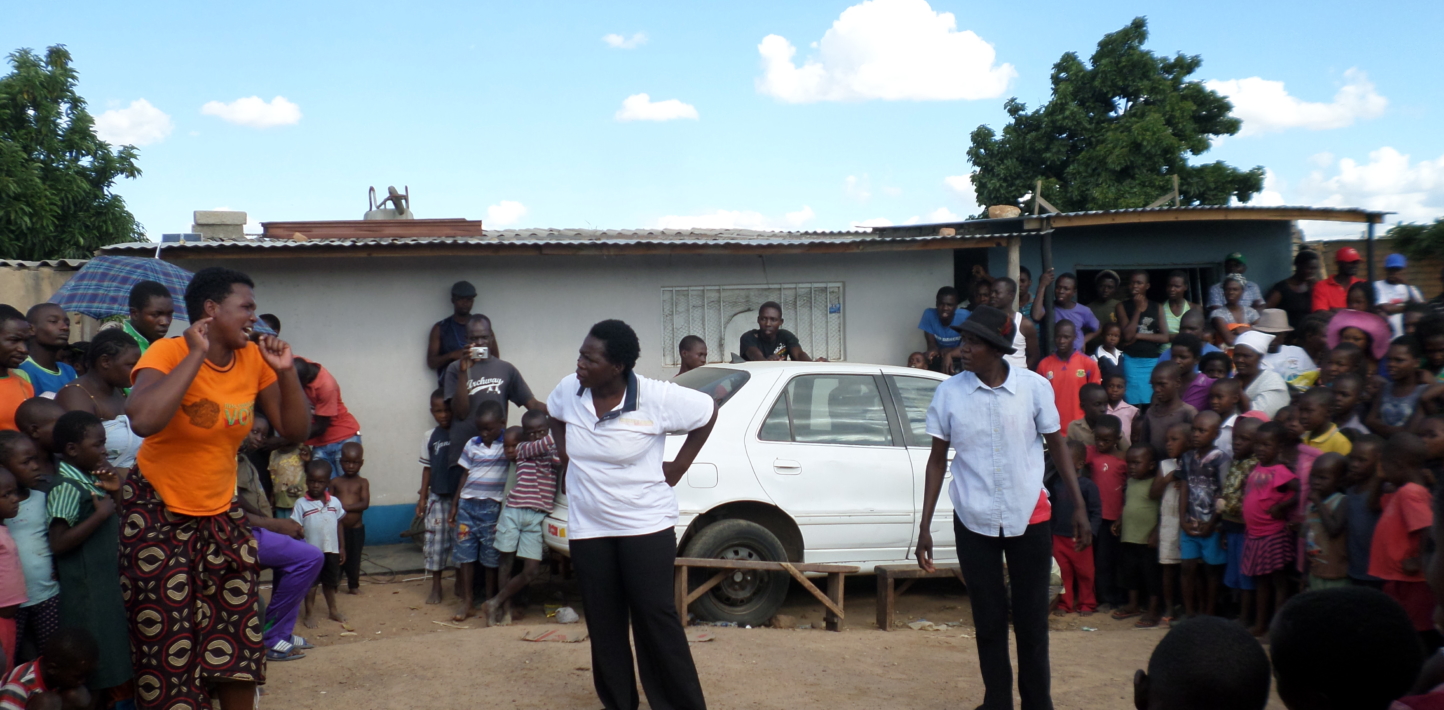Ending violence in the home is an issue for the whole community – women and men in Harare, Zimbabwe are using theatre to claim their rights to live free of domestic violence.
Hazel is 28 years old. She lives in Hopley Farm settlement in the country’s capital Harare, with her three children, in an area characterized by high incidents of unemployment, social and housing problems.
Hazel (which is not her real name) was moved to tears the moment she realized that domestic violence is punishable by the Zimbabwean law. “I don’t live a normal life”, she said, going on to explain how her husband would physically assault her and the children on a daily basis.
Vongai Chikwanda, former Human Rights Education Coordinator at Amnesty Zimbabwe, explains that gender based violence is a huge problem in the settlement. Men traditionally pay bridal money or dowry, known as lobola, and feel that it gives them the right to ‘discipline’ their wives whenever they have displeased them. In Zimbabwe, domestic violence is punishable by law but in reality it is often unreported as it is seen as a private family matter dealt with during family councils.
“It is important to educate the women to become human rights defenders, so that they in turn can educate the other women in their communities to stand up for their rights and end domestic violence in their homes,” says Vongai.
Hazel felt so empowered and inspired by the dialogues and the theatre performance she decided to live a violent free life… she has become an activist herself.
Vongai Chikwanda, former Human Rights Education Coordinator at Amnesty Zimbabwe
Using theatre enables the message to reach a large audience, targeting the whole community in an entertaining and engaging way. Participatory techniques introduced into the theatre plays bring the audience into the performance, by giving them space to act alongside the actors or suggest how scenes can be altered.
“Theatre appeals to all people from different social classes and education, and it is a subtle way to speak about unspoken issues,” says Vongai.
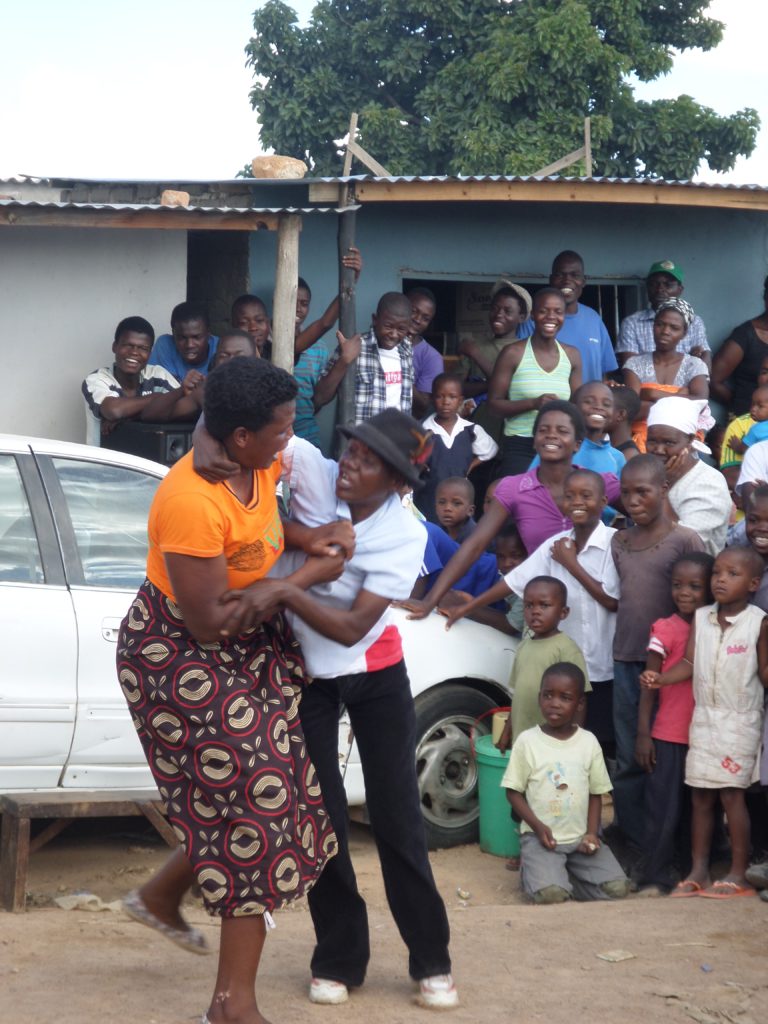
The audience collectively and individually take part in the debate, and can reflect on their rights as a group with role-play allowing people to imagine how changes in their behaviour can radically change their daily lives.
Amnesty worked with the local “All Generations drama group” and trained twenty-eight women from six different zones of the Hopley Farm settlement on gender based violence and women’s rights. Those women took the training to become active human rights defenders to break the taboo preventing people from talking about domestic violence. They then went on to organise community theatre and dialogues to open discussions with both men and women on domestic violence. Members of the local police force, the Victim Friendly Unit, also attended, explaining the steps to take if anyone experiences violence in their homes.
It was at a community dialogue that Hazel got the courage to speak openly about the reality of her own life: the daily abusive encounters with her husband and her constant fear. The VFU police gave Hazel their phone number and assured her that they could be reached anytime she felt threatened. At first, Hazel’s husband continued his violent assaults on her, so she called the police. Her husband was arrested and cautioned several times and Hazel says he has now stopped assaulting her.
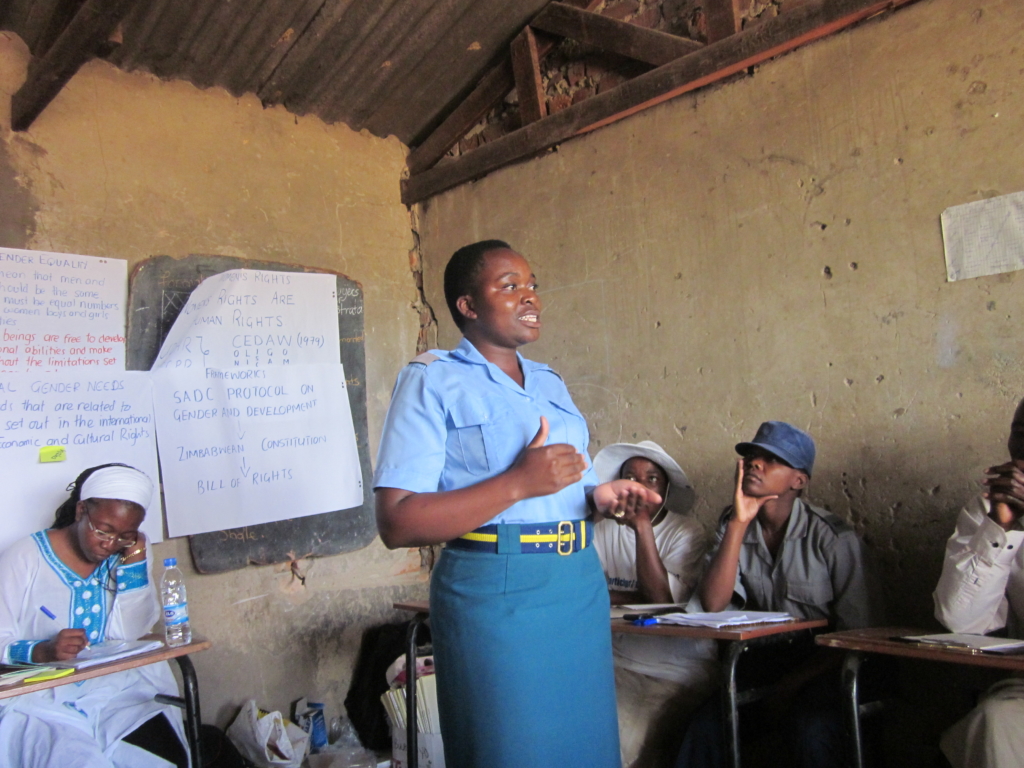
“Hazel felt so empowered and inspired by the dialogues and the theatre performance she decided to live a violent free life,” Vongai reports, “as a result, she has become an activist herself and has started to educate other women to speak up in order to stop the domestic violence in their homes.”
Other women in the settlement have experienced similar stories. Daya (whose name has been changed) was suffering physical and economic abuse, her husband refused to give her money for food or let her work and beat her daily. Daya attended a dialogue session in June and after several violent assaults from her husband she reached out for helped and called the women trained by Amnesty.
They encouraged her to call the police. The police intervened and both husband and wife received counselling sessions about the implications of physical assault. According to Daya, her husband now allows her to work and has stopped assaulting her. Daya is empowered with the knowledge of her legal rights and has made it her duty to educate other women in the market place where she works.
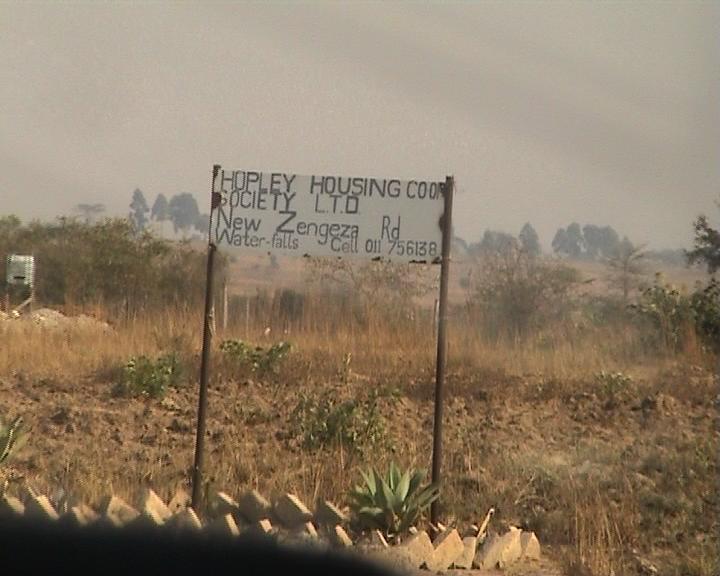
“Using community theatre, or interactive theatre, has proven to be effective in reaching people at different levels in the settlement to foster social change and raise awareness about the difficult social conditions in Hopley. It has helped sustain community human rights activism. The impact of the community dialogues and theatre performances has been very positive, and many women in the Hopley Farm community have expressed joy at this initiative” says Vongai, adding that local leaders are also endorsing the work. Another result of engaging the community as a whole is that police clearance is no longer required for Amnesty Zimbabwe to organise theatre performances in these local communities.
